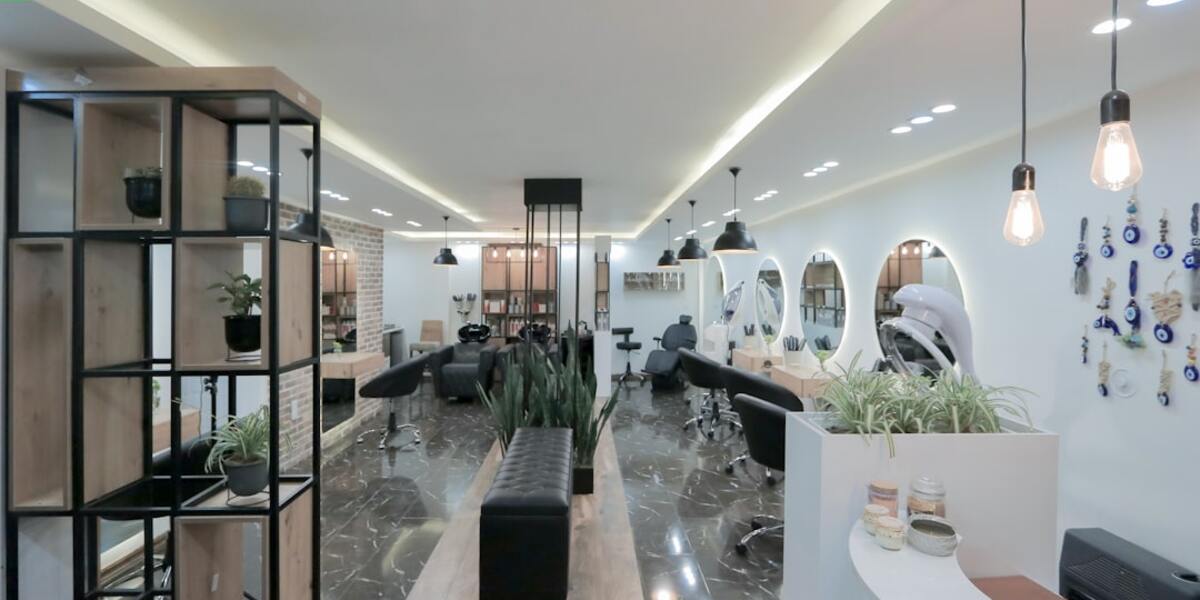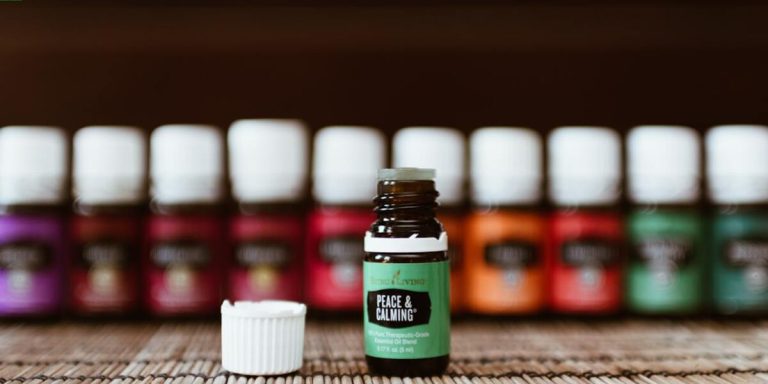Hair Regrowth After Birth Control: Perspectives and Possibilities
Birth control pills, commonly referred to as the pill, have been a popular contraceptive method for many years. However, there is another side of these hormonal contraceptives that often goes unnoticed – their potential impact on hair’s lifecycle. While some women may experience hair thinning or loss while taking the pill, others might notice significant “hair regrowth after birth control” once they stop using it.
Various factors contribute to this phenomenon and understanding them could offer insights into enhancing and promoting healthier natural tresses. The onset and extent of post-pill hair regrowth vary from woman to woman due primarily because each individual reacts differently to hormonal changes brought about by discontinuing birth control use.
Did you know?
Did you know? It’s quite common for women to experience hair thinning or loss once they stop taking hormonal birth control due to a temporary change in the hair growth cycle, but it typically regrows within six months.
Understanding Hair Loss After Birth Control
Regulating birth control is an integral part of many women’s lives. However, it may come as a surprise to learn that discontinuing the use of contraceptives can sometimes initiate hair loss. This unexpected phenomenon occurs due to hormonal changes and fluctuations which interfere with your normal hair growth cycle.
Understand that birth control pills affect your body’s hormones, including estrogen and progestin levels. These are carefully balanced in contraceptive pill formulations, but stopping the pills can disturb this balance and lead to various responses, such as disrupting natural hair growth patterns.
Now here comes the good news: Hair regrowth after stopping birth-control isn’t a myth—it’s very much achievable! Addressing lifestyle habits like diet, stress management along with incorporating effective topical treatments are some ways through which you could stimulate new healthy hair follicles return back onto scalp ensuring thickness volume strength reveled by all who inherit its incredible powers!
The Link Between Hormonal Contraceptives and Hair Shedding
Hormonal contraceptives, a widely used form of birth control, are often associated with numerous side effects. One such unspoken yet distressing issue is hair shedding. Most women experience thinning or hair loss after stopping their hormonal contraceptives which can be quite alarming.
Hormones significantly influence your body’s functions, including hair growth. Hormonal birth control methods like pills drastically change hormone levels to prevent pregnancy. This sudden shift can lead to telogen effluvium, where more hair strands prematurely enter the resting phase and fall out quickly, causing a noticeable decrease in volume over time.
Now here comes our silver lining – while the connection between contraception and increased shedding seems disheartening, there’s good news about “hair regrowth after birth control.” The key is understanding that once you stop using your hormonal contraceptive method, your body begins recovering its regular hormonal balance thereby promoting healthier cycles for each strand on your head making way for new ones to sprout up!
Recognizing the Signs of Post-Birth Control Telogen Effluvium
Telogen effluvium, a form of temporary hair loss, often occurs post-birth control. Recognizing the signs early can pave the way for effective treatment and promote hair regrowth after birth control.
One noticeable sign is an increase in shedding. Normally, you may lose 50-100 hairs daily as part of the natural lifecycle. However, with telogen effluvium post-birth control consumption, there might be a significant rise in this number leading to visible thinning on various parts of your scalp.
As alarming as these symptoms sound remember they’re reversible.Hair regrowht after brith contol induced talgen efluvium follows its own course.But identifying these signals earlier goes far wayin helping manage th situation better.A healthy diet,sufficient hydration,stress reduction,and appropriate supplements coupled with patience will see through this phase.
Strategies for Promoting Hair Regrowth Post-Contraception
Regaining your luscious locks after stopping birth control can be a challenging task. However, with an effective strategy in place, it’s more than possible to boost hair regrowth post-contraception. The hormonal changes that occur when you leave contraceptives behind often lead to temporary hair thinning or shedding.
This happens due to shifts in estrogen and progesterone levels; both hormones play crucial roles in the life cycle of each strand on your head.
Stopping hormonal birth control can lead to telogen effluvium, which is when you shed a lot of hair. This normally happens about two months after a shock like having a baby, going through major surgery, or losing a lot of weight. It isn’t lasting baldness but rather your body’s way of reacting that typically calms down within six to nine months from when it first starts.
To fight these effects, you can use several effective methods:
- Eat healthily with foods that have important vitamins and minerals to improve the health of your hair follicles and promote strong growth again.
Nutritional Adjustments to Support Follicle Recovery
Proper nutrition plays a crucial role in promoting hair regrowth after birth control. Post-contraception hormonal imbalances often lead to an increased rate of hair shedding, which can be challenging to counteract without specific nutritional changes.
Firstly, make sure you’re getting enough protein. Hair is made primarily from keratin–a type of protein indicating the need for adequate protein intake daily. Lean meats, fish, eggs and dairy products are excellent sources; however plant-based options such as lentils or quinoa also pack substantial amounts.
Secondly, incorporate plenty of iron-rich foods into your diet. Low iron levels have been linked with hair loss post-pregnancy and birth control use exacerbates this condition making it doubly important for women in these situations to boost their iron uptake through foods like spinach or fortified cereals.
Third on our list would be zinc incorporation. Zinc aids cell reproduction and tissue growth essential elements necessary for robust regeneration aiding optimal follicle recovery .
Finally rounding off with Omega-3 fatty acids since they benefit cardiovascular health indirectly improving blood circulation stimulating better scalp health leading ultimately towards desired healthy re-growth patterns.
Topical Treatments and Supplements That Aid in Hair Renewal
For many women, hair regrowth after birth control is a pressing issue. It’s an unjust side effect of contraception that can cause emotional distress and damage self-confidence. However, don’t lose hope just yet; several topical treatments and supplements have proven beneficial for promoting hair renewal post-contraception.
Starting with topical solutions such as minoxidil, this FDA-approved treatment works by prolonging the growth phase of your hair follicles leading to denser and fuller strands over time. Available in various concentrations, consult a healthcare provider on suitable options based on individual needs.
Next up – essential oils could be helpful too! Lavender oil significantly improves the number of hairs in their growth phase while rosemary oil increases scalp circulation stimulating better growth patterns. Daily massage using these oils mixed with carrier ones like jojoba or coconut can prove effective.
Also noteworthy are Omega 3 fatty acids that maintain healthy skin and scalp conditions conducive to optimal hair development besides also managing hormonal imbalances prevalent during post-contraceptive phases.
Additionally consider other vitamins & minerals like Vitamin D working through receptor stimulation thus maintaining new strand creation whereas Iron ensures proper oxygen supply to our tresses right at their roots reducing unnecessary fallouts often seen after stopping contraceptive usage.
Managing Expectations: Timelines & What to Anticipate During Recovery
Hair regrowth after birth control can be a journey filled with anticipation and patience due to the variables involved in hormonal rebalance. The timeline for hair recovery post-hormonal birth control isn’t set in stone, largely because women’s bodies are unique and respond differently to hormonal changes.
A common misconception is that full restoration happens instantly or within a few weeks of discontinuing birth control. However, it may take several months or even up to a year before you witness noticeable improvements. This timeframe shouldn’t deter your hope; instead understand that healthy hair growth is not instantaneous but rather gradual, ensuring strong roots and shiny strands over time.
Aside from simply waiting patiently for nature to take its course, there’s also much one can do actively during this recovery phase. Healthy eating habits high in essential vitamins such as Amino Acids, Omega 3 fatty acids coupled with regular exercise can help stimulate healthier re-growth faster than anticipated since these practices contribute positively towards overall scalp health leading better environment conducive for hair regrowth.
Remember managing expectations realistically around timelines aids greatly when striving towards complete recovery from any form of temporary alopecia including sudden thinning caused by use of contraceptives like Birth Control pills.
Estimating the Duration of Your Hair Regrowth Journey
Hair regrowth, especially after ceasing birth control, can feel like a daunting process. The question on every woman’s mind is often “how long?” Timeframes tend to vary depending upon individual factors like your body’s reaction to hormonal changes and overall health condition.
You must understand that hair growth does not happen overnight even when you’ve successfully gone off the pill. It demands patience as well as consistency in maintaining good hair care habits and diet.
Typically, it may take anywhere between three months up until one year for noticeable improvements. This timeline however should not alarm you since each person experiences distinct reactions post quitting contraceptives.
From week 1 of stopping birth control pills, many women notice mild shedding that may continue for up to six weeks as they progress towards hair regrowth. This temporary phase, called telogen effluvium, makes luscious strands appear thinner as they reach the end of their life cycle quicker, leading to fallout. New hairs gradually replace the old ones beneath the scalp’s surface over several months or sometimes longer.
By month 3-4 following cessation contraceptive usage , there usually occurs an encouraging sign i.e., baby hairs sprouting around temples region indicating successful restart biological processes those were inhibited during routine consumption hormone altering medications such combined oral pills etcetera .
Psychological Impact and Coping Mechanisms While Awaiting Results
It all starts with accepting this crucial fact – patience is essential during recovery. Hair growth doesn’t happen overnight; It can take several weeks to months.
You may experience a roller coaster of emotions while going through photographs that showcase lush locks from yesteryears or when anxiously checking for new sprouts in front of the mirror daily. This emotional tug-of-war can be daunting but bear in mind, such feelings are normal.
Creating coping mechanisms will significantly help deal with these trials:
1) **Remind yourself constantly**: This process takes time. Let nature run its course at its own pace.
2) **Stay Positive**: Negative thoughts could stress you out further which might slow down the hair regrowth process.
3) **Encourage Progress Over Perfection** : Celebrate small victories whether it’s noticing new strands growing or not losing as much hair while combing compared to before!
While awaiting visible results post ‘hair regrowth after birth control’, remember never let any situation overpower mental health equilibrium!
Conclusion
In wrapping up, it’s evident that hair regrowth after birth control is more than just a possibility; it’s an achievable reality. With the right knowledge and products at your disposal, you can navigate this journey confidently. Remember to be patient with yourself during this process because good things—like luscious locks tresses—often take time.
Our website hosts numerous resources on ‘Hair Regrowth’ available for your perusal. Rest assured, we provide reliable information and credible solutions tailored to suit various hair regeneration scenarios including post-birth-control periods. We invite you to explore further as we continue shedding light on ways of reclaiming robustness in not only your mane but also overall wellbeing!







